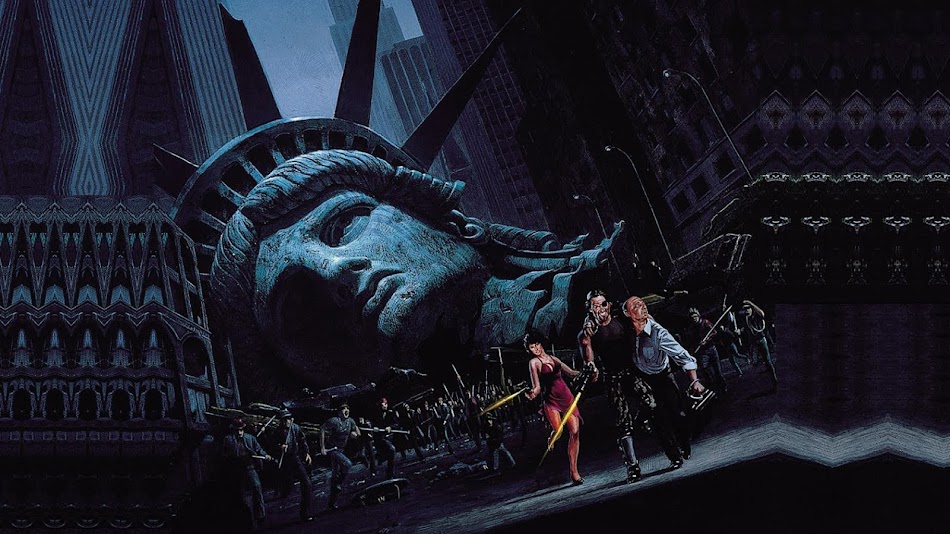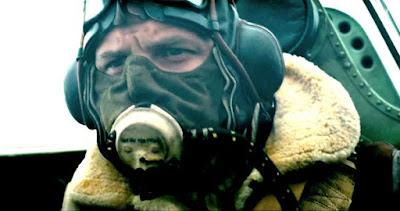DUNKIRK
(US - 2017)
Written and directed by Christopher Nolan. Cast: Fionn Whitehead, Tom Hardy, Kenneth Branagh, Cillian Murphy, Mark Rylance, Tom Glynn-Carney, Jack Lowden, Harry Styles, Aneurin Barnard, James D'Arcy, Barry Keoghan, Joachim ten Haaf, Matthew Marsh, Damien Bonnard, Will Attenborough, Bill Milner, voice of Michael Caine. (PG-13, 106 mins)
Christopher Nolan's painstakingly-constructed DUNKIRK brings a harrowing you-are-there immediacy to the 1940 evacuation of Dunkirk with an intensity that plays like a feature-length version of SAVING PRIVATE RYAN's opening sequence at Normandy. At 106 minutes, it's Nolan's shortest film since his 1998 pre-MEMENTO debut FOLLOWING, but it never feels less than epic in its presentation and its ambition. One of the few true purists left among A-list filmmakers, Nolan uses the barest minimum of CGI in DUNKIRK, instead going the classic route, shooting on film--mostly with IMAX cameras--with real extras, real locations, real ships, and real planes. For those who don't spend a lot of time watching old movies where such things were more commonplace, the difference is immediately, staggeringly obvious. There's a tangible sense of reality to the aerial shots and the long/wide shots up and down the beach, filled with thousands of extras as British soldiers waiting to be rescued that would've been compromised if done digitally. Nolan's approach to the film stands as proof that no matter how far CGI has progressed (WAR FOR THE PLANET OF THE APES is the current standard-bearer as far as fantasy cinema goes), when it comes to recreations of historical events such as this WWII story, the old ways remain the most effective.
There's a scene very late in the 1980 gangster classic THE LONG GOOD FRIDAY where British mob boss Bob Hoskins, trying to sever his ties with gangland past, chews out his New York Mafia partners for backing out of a business deal over fears that his criminal empire will interfere with their legit interests. "Us British," he explains, "We're used to a bit more vitality, imagination, touch of the Dunkirk spirit, know what I mean?" The Dunkirk spirit is present throughout, as Nolan presents three intercut narratives over the course of DUNKIRK: "The Mole," takes place one week before the evacuation; "The Sea" takes place one day before; and "The Air" one hour before. Of course, all three eventually come together, and while it may seem gimmicky, it's in line with Nolan's recurrent motif of playing with time elements (so important to MEMENTO, INCEPTION, and INTERSTELLAR). It works beautifully, with imagery in one tying into and complementing something going on in another, and with occasional characters popping up in other sections as the threads begin to overlap. It's not confusing at all, and it's becoming one of the things that make Christopher Nolan films so unique. "The Mole" focuses on young soldiers Tommy (newcomer Fionn Whitehead) and Gibson (Aneurin Barnard), and later, Alex (One Direction's Harry Styles, who's surprisingly solid in his dramatic acting debut) at Dunkirk, where 400,000 mostly British soldiers are waiting to be evacuated after German forces have pushed them to the edge of the town, making them sitting ducks for German air raids. "The Sea" follows mild-mannered Dawson (BRIDGE OF SPIES Oscar-winner Mark Rylance), his son Peter (Tom Glynn-Carney) and Peter's shy, introverted friend George (Barry Keoghan) as they take Dawson's boat out to sea, joining other civilians and Navy-commandeered private vessels on a dangerous mission to Dunkirk to rescue their officers. "The Air" centers on two Spitfire pilots--Farrier (Tom Hardy) and Collins (Jack Lowden)--left on their own after the squad leader is shot down, heading to Dunkirk to take out German planes, with Collins forced to land on the water and Farrier playing guessing games with his fuel after his gauge is damaged in a skirmish.






No comments:
Post a Comment